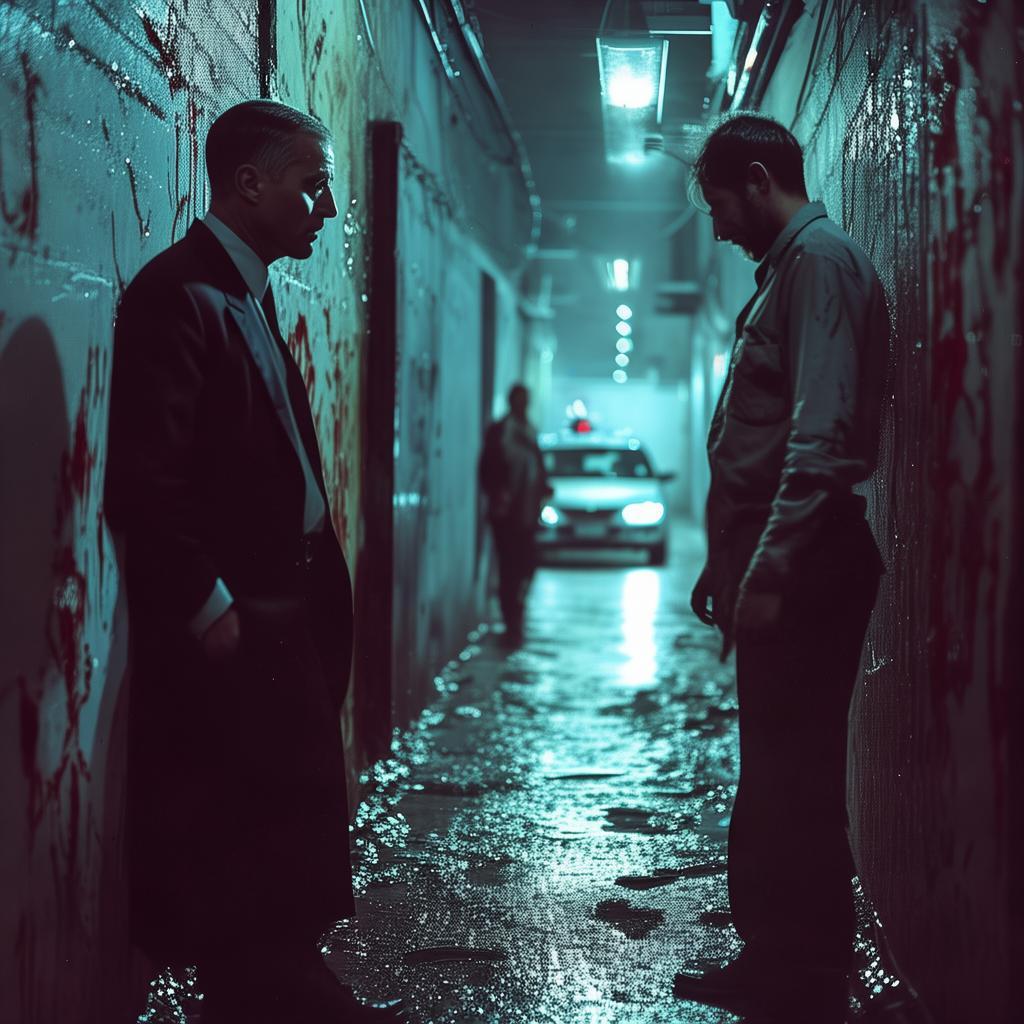Whispers of the Forgotten: A Gothic Opera's Haunting Requiem
The stage was set in the heart of Incheon, a city where shadows danced with the moonlight, and whispers carried tales of the forgotten. The opera house, a grand Gothic structure, stood as a silent sentinel, its ancient walls echoing with the echoes of the past. The title of the opera, "The Killer's Requiem," had spread like wildfire, drawing curious souls to its dark embrace.
The protagonist, Elara, was a young soprano with a voice that could rend the very fabric of reality. She had been chosen to play the lead role, a woman whose life was torn apart by the hands of an unknown killer. As the rehearsals began, Elara felt an inexplicable connection to her character, as if the lines she sang were her own whispered secrets.
The second character, Victor, was the lead tenor, a man whose past was as mysterious as the opera itself. His voice was like the wind through the trees, haunting and beautiful, yet tinged with a darkness that seemed to seep from the ground. Victor had a secret that could unravel the very fabric of the opera and the lives of those involved.
As the night of the opening performance approached, the tension in the air was palpable. The rehearsals had become more than just a performance; they were a ritual, a dance with death. Elara and Victor found themselves drawn to each other, their connection as inexplicable as the events that were unfolding around them.
One evening, as they were practicing a particularly haunting aria, the lights dimmed, and a figure emerged from the shadows. It was the conductor, a man whose eyes held the weight of a thousand secrets. He approached Elara and Victor, his voice a low whisper that sent shivers down their spines.

"The killer is among us," he said, his words hanging in the air like a death sentence. "And tonight, when the curtain falls, the truth will be revealed."
The opening night arrived, and the audience was captivated. The music swelled, the voices soared, and the story of the forgotten murder unfolded before their eyes. As the final note echoed through the opera house, the lights flickered, and the conductor's words came to life.
Elara and Victor, now bound by a shared fate, found themselves face-to-face with the killer. It was not the man they had suspected, but someone far more sinister, someone who had been watching them from the shadows all along.
The climax of the story was a whirlwind of emotions and revelations. Elara and Victor were forced to confront the truth about their own lives, the secrets they had kept, and the killer's motives. In a final act of despair, Elara sang her final aria, her voice a siren call that seemed to reach into the very soul of the opera house.
As the curtain fell, the audience was left in a state of shock and awe. The performance had been more than just a show; it had been a revelation, a glimpse into the dark underbelly of the human soul.
In the aftermath, Elara and Victor were forever changed. They had faced their deepest fears and discovered the truth about themselves and the world around them. The opera, "The Killer's Requiem," had become more than just a performance; it had become a requiem for the forgotten, a haunting reminder of the darkness that lies within us all.
In the end, the opera house stood silent, its walls still echoing with the whispers of the forgotten. And Elara and Victor, forever bound by the events of that fateful night, walked away, their lives forever altered by the haunting requiem that had brought them together.
✨ Original Statement ✨
All articles published on this website (including but not limited to text, images, videos, and other content) are original or authorized for reposting and are protected by relevant laws. Without the explicit written permission of this website, no individual or organization may copy, modify, repost, or use the content for commercial purposes.
If you need to quote or cooperate, please contact this site for authorization. We reserve the right to pursue legal responsibility for any unauthorized use.
Hereby declared.









